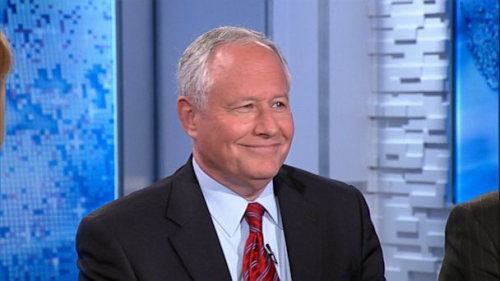Parmi les rencontres que j’ai faites durant ma période parisienne (1977 – 1983), celle de Philippe Baillet fut pour moi une des plus enrichissantes.
Co-fondateur de la revue Totalité, Baillet est l’un des principales artisans de la réception de l’œuvre de Julius Evola dans les pays francophones.
Sa maîtrise de l’italien lui permet de lire dans le texte original et de traduire avec fidélité de nombreux auteurs transalpins, dont l’énumération impressionne au chapitre 2 de la première partie de l’ouvrage ici recensé : Le Parti de la Vie. Clercs et guerriers d’Europe et d’Asie.
Il s’agit d’un recueil de textes initialement parus dans divers périodiques, dont Rivarol et Écrits de Paris, où j’ai moi-même collaboré entre 1977 et 1979.
Je reste reconnaissant à Philippe Baillet de m’avoir accordé son amical soutien, non exempt de critique toujours courtoisie, lors d’une conférence que j’ai prononcé en février 1979 au Cercle Péguy de Lyon. Dans la salle, il y avait une charmante et prometteuse étudiante nommée Chantal Delsol. Cette soirée rhodanienne demeure parmi les plus beaux souvenirs de mon séjour dans l’Hexagone.
L’émotion nostalgique s’efface devant la rigueur comptable de l’index, où Evola est cité douze fois, Guénon apparaît à trois reprises et Coomaraswamy ne récolte qu’une seule mention, en note infra-paginale.
Revenu à Nietzsche « comme référence essentielle » après « un très long détour (p. 15) » par le « traditionalisme intégral » des trois penseurs susdits, Baillet semble toutefois toujours considérer Evola comme inspirateur incontournable dans la perspective de La Désintégration du Système.
L’ouvrage de Giorgio Freda était abondamment commenté vers 1975 dans les milieux nationalistes-révolutionnaires. Il ne contenait rien d’original. Tout y était originel. Présents dans la préface du livre de Freda, les deux adjectifs s’opposent aussi dans la conclusion du recueil de Baillet.
Celui-ci évoque la haute figure de Lao-tseu : « Le vrai taoïste, lui, est insouciant de sa propre insouciance, qu’il ne donne pas en spectacle pour paraître “ original ”. Il est bien plutôt tourné vers l’originel (p. 233, c’est Baillet qui souligne). »
Quand on se rappelle que Révolte contre le monde moderne s’ouvre sur un extrait du Tao tö king, on peut conclure que l’ombre d’Evola plane sur ce florilège divisé en deux parties inégales, la première (six chapitres) relevant de la littérature et de l’histoire des idées, la seconde (deux chapitres) d’orientation plus nettement philosophique.
Le cloisonnement n’est toutefois pas étanche. L’auteur nous remet en mémoire l’œuvre littéraire de Mishima, extraordinaire en regard de sa courte existence : « Près de quarante romans, vingt recueils de nouvelles, dix-huit pièces de théâtre et quelques essais (p. 183). »
Parallèlement, quelques-uns des écrivains français analysés dans la première partie ont été attirés par l’Extrême-Orient. Même André Malraux, « un cabotin qui rêvait de s’inscrire dans la lignée des grands esthètes armés (p. 112) », connut une période japonisante, controversée, il est vrai. Rappelons aussi que La Condition humaine se passe en Chine.
En Chine : tel est précisément le titre d’un « ouvrage remarquable et devenu très rare (p. 79) » d’Abel Bonnard, dont Philippe Baillet se plaît à exhumer quelques brillantes phrases aux allures de maximes. « La Mort nous cache le regret de quitter le monde dans le bonheur de quitter les hommes (p. 108). »
Pierre Drieu connut aussi ce que le Belge Firmin Vandenbosch appelle « la tentation de l’Orient ». À l’auteur du Feu Follet, qui dirigea la Nouvelle revue Française sous l’Occupation, Baillet concède « l’élégance et l’honnêteté du désespoir ». Elles « forcent l’estime, voire l’admiration, que ne mérite sans doute pas l’œuvre, avec son ton trop souvent sentencieux, son style parfois médiocre, ses essais très inégaux, dans lesquels les meilleures intuitions s’arrêtent la plupart du temps au stade de l’esquisse (p. 111) ».
Étendues à Gabriele d’Annunzio et Ezra Pound, sommairement négatives en ce qui concerne Louis Aragon, les considérations d’ordre littéraire ne constituent pas l’essentiel du message délivré par Philippe Baillet.
Les amateurs de rapprochements inattendus goûteront celui effectué entre Nietzsche et Lao-tseu partageant « une vision biocentrique du monde (p. 202) ». Dans le cadre de cette étonnante parenté entre « deux univers de pensée » et en dépit de leur « éloignement racial, temporel, spatial et civilisationnel (p. 216) », Philippe Baillet redéfinit l’idée tant débattue de « volonté de puissance », « catégorie ontologique suprême (p. 218) », « sens originaire (p. 225) » non réductible au simple vitalisme bergsonien.
La « volonté de puissance » est synonyme de la « persévérance dans l’être ». Une filiation philosophique directe relie dès lors Nietzsche et Heidegger, et peut-être, en amont de l’histoire de la pensée européenne, le Wille zur Macht de Nietzsche et le conatus de Spinoza. En tout cas, la « volonté de puissance » s’affranchit de tout rapetissement tel que voudrait lui faire subir une certaine critique guénonienne en la confondant avec le jaillissement de « l’élan vital », avec « la création incessante d’imprévisible nouveauté », avec un vitalisme priapique et éjaculatoire.
Ailleurs dans l’ouvrage, certains guénoniens sont implicitement ciblés dans la mesure où ils jugent toute révolution anti-moderne impossible en raison des conditions cosmiques défavorables. Ce point de vue revient à catamorphoser le « traditionalisme intégral » en un mythe démobilisateur. L’Histoire n’est pas un progrès linéaire, mais elle n’est pas davantage une décadence unidirectionnelle. Comme le répétait souvent notre regretté ami Dominique Venner, elle a sa part d’imprévu, même si une véritable « astrologie mondiale », apte à saisir la respiration du mouvement historique, pourrait y introduire une frange de prévisibilité.
En l’occurrence, l’important est de ne pas « déserter la lutte pour la défense de la cité en raison du dégoût que celle-ci nous inspire (p. 104) ». Il ne faut pas « attendre que tout s’arrange grâce à la divine Providence (p. 105) », par une sorte de retournement automatique inscrit dans la marbre de la fatalité, par une espèce de choc en retour ou d’effet boomerang contre la pesanteur plurimillénaire de l’Âge Sombre (Kali Yuga).
À défaut de compter sur une improbable metanoïa de ce type, vers où convient-il de tourner le regard d’une espérance en une « régénération de l’Histoire (p. 133) », face au « mouvement irréversible » (François Hollande) que veut lui imprimer le finalisme égalitaire ?
Ce n’est ni du Front national ni des divers partis « populistes » européens qu’il faut attendre une salutaire réaction contre ceux qui souhaitent suspendre le vol du temps, non pas comme Lamartine sur les rives romantiques du lac du Bourget, mais au bord du bourbier social-démocrate perçu comme « horizon indépassable ».
Je partage totalement le point de vue qu’exprime Baillet dans les lignes qui suivent et dans son jugement sur le parti lepéniste.
« Je tiens évidemment pour acquis que les lecteurs auxquels je m’adresse ne nourrissent pas l’illusion de penser que les différents mouvements “ populistes ” qui engrangent des succès électoraux dans l’Europe d’aujourd’hui sont une résurgence du phénomène fasciste (p. 161). »
Quant au Front national, il « entretient désormais le comble de la confusion » en se présentant comme « le défenseur par excellence du républicanisme et du laïcisme (p. 101) ».
Philippe Baillet nous invite à rechercher « l’essence du fascisme », selon l’expression de Giorgio Locchi, dont une conférence est retranscrite (pp. 164 à 182) entre les deux parties du livre. Il s’agit en quelque sorte de trouver pour le fascisme l’équivalent de ce que le grand critique littéraire allemand Leo Spitzer, fondateur de la stylistique, veut faire surgir dans sa lecture des écrivains : un « étymon spirituel ».
Philippe Baillet s’interroge à propos d’un « nouveau regard (p. 21) » que la science et la recherche universitaires semblent porter, depuis quelque temps, sur le national-socialisme.
Johann Chapoutot affirme que le national-socialisme est porteur d’une Kulturkritik « prolixe et plus argumentée qu’on ne le dit (p. 22) ».
Plusieurs expéditions scientifiques en Amazonie, au Libéria et au Tibet, la reconversion de Leni Riefenstahl comme cinéaste du Sud-Soudan : voilà autant de faits avérés qui plaident en faveur d’une ouverture du nazisme au monde non européen. Ces réalités « sont encore largement méconnues dans nos propres rangs, quand elles ne sont pas purement et simplement ignorées (p. 247) ».
En revanche, on ne peut que constater l’hostilité de « beaucoup de hauts responsables nationaux-socialistes […] à la postérité d’Abraham, aux serviteurs de la Loi, de la Croix et du Livre, bref à tout l’univers mental du “ sémitisme ” au sens le plus large (p. 29) ».
Dans le sillage de Giorgio Locchi, Philippe Baillet diagnostique une « tendance époquale (p. 136) » dont nous subissons les effets pernicieux depuis deux millénaires : un sémitisme lato sensu, un judéo-christiano-islamisme, auquel doit s’opposer une « tendance époquale » surhumaniste.
 Respectivement consacrés à Renzo de Felice et Giorgio Locchi, les chapitres 1 et 6 de la première partie posent les questions les plus fondamentales pour notre famille de pensée. Jusqu’où faire remonter la recherche de notre « moment zéro » (François Bousquet) ? Les étapes de la « tendance époquale » surhumaniste se succèdent-elles de manière continue ? Le fascisme lato sensu (dont le national-socialisme est provisoirement la forme la plus achevée) a-t-il été « prématuré (p. 142) », comme le laissent supposer certains passagers de Nietzsche prophétisant un interrègne nihiliste de deux siècles ?
Respectivement consacrés à Renzo de Felice et Giorgio Locchi, les chapitres 1 et 6 de la première partie posent les questions les plus fondamentales pour notre famille de pensée. Jusqu’où faire remonter la recherche de notre « moment zéro » (François Bousquet) ? Les étapes de la « tendance époquale » surhumaniste se succèdent-elles de manière continue ? Le fascisme lato sensu (dont le national-socialisme est provisoirement la forme la plus achevée) a-t-il été « prématuré (p. 142) », comme le laissent supposer certains passagers de Nietzsche prophétisant un interrègne nihiliste de deux siècles ?
Selon Locchi et Baillet, le « phénomène fasciste » de nature « transnationale et transpolitique (p. 136) » prend racine dans « la seconde moitié du XIXe siècle (p. 137) ». Baillet précise dès sa préface : « la grande réaction antirationaliste de la fin du XIXe siècle (p. 12) » marque l’origine du fascisme en tant qu’essence apte à « détrôner le cogito (p. 221) », cette formule finale soulignant la remarquable cohérence de l’auteur.
Mais pourquoi ne pas remonter encore plus loin, par exemple jusqu’à cet équivoque XVIIIe siècle qui préoccupe Renzo De Felice avant qu’il se spécialise dans la période mussolinienne ?
Car le siècle des prétendues « Lumières » et de l’Aufklarung ne fut pas seulement celui des philosophes néo-cartésiens instaurant « pour la première fois une culture de masse (p. 146) ». Il fut aussi celui des « illuminés » dont le « mysticisme révolutionnaire (p. 44) » fournit à l’historien l’occasion de réhabiliter « la dignité historiographique de l’irrationnel (p. 47) ». Le propos de De Felice est « d’insérer le “ fait mystique ” dans l’histoire, alors même que, selon lui, des tentatives dans ce sens n’ont été faites que par l’histoire littéraire à propos du Sturm und Drang et du romantisme (p. 44) ». Je rejoins Philippe Baillet dans son appel à compulser plus systématiquement les revues culturelles gravitant dans l’orbite du fascisme (allemand en l’occurrence) pour dévoiler certaines facettes d’un “ sens originaire ” ou d’un “ étymon spirituel ” chez Klinger, Lenz, Schiller, Herder, Hölderlin et Novalis, disait un jour Robert Steuckers cité en page 155. À titre anecdotique, je signale qu’un des plus brillants germanistes que j’ai croisés à l’Université libre de Bruxelles était d’origine togolaise et faisait une thèse de doctorat sur le Sturm und Drang.
Sur la « Révolution conservatrice », c’est bien entendu le travail de rassemblement d’Alain de Benoist (cité pages 134 et 155) qu’il faut saluer, tout en insistant sur un thème commun à Locchi et Baillet : la parfaite continuité de ce mouvement et du national-socialisme, même si certains « révolutionnaires-conservateurs (comme Armin Mohler, par exemple) ont « tenté de tourner les difficultés liées à cet incommode voisinage (p. 149) ».
Sous la forme du national-socialisme, la « tendance époquale surhumaniste » a-t-elle émergé trop tôt ? On peut le penser dans la mesure où la « tendance époquale » opposée, de nature « sémitique », n’était pas encore en état d’épuisement. Elle refait surface aujourd’hui dans « le panislamisme radicalisé », ses « formes exacerbées de ressentiment culturel » et sa « haine raciale patente (p. 161) ».
Le seul passage du livre de Baillet qui puisse laisser le lecteur sur sa faim est celui où l’islamisme est ainsi réduit à l’influence de facteurs psychologiques. Je conseille la lecture de l’analyse plus fine de François Bousquet, cité plus haut, dans la revue Éléments (n° 156, pp. 22 à 24).
Selon Bousquet, toute religion est coextensive d’un devenir historico-culturel et un exemple éloquent en est fourni par le Christianisme, qui peut être « interprété comme une métamorphose complexe de l’ancestrale religion païenne (p. 137) ». En l’occurrence, Baillet fait écho aux idées de Wagner, l’un des pôles de la « tendance époquale surhumaniste » (l’autre pôle étant évidemment Nietzsche).
Mais la mondialisation post-moderne favorise, par une sorte de mutation génétique, l’émergence de religions d’un type nouveau qui, à l’instar des « frères ennemis » de l’évangélisme et du salafisme, aspirent à renouer avec leur « moment zéro », leur origine immaculée, leur paléo-tradition non encore entachée par les vicissitudes de l’Histoire et les contraintes de ce que Charles Péguy appelle la nécessaire « racination » du spirituel dans le charnel.
À la lumière de l’article de Bousquet, le « panislamisme radicalisé » apparaît motivé par quelque chose de bien plus essentiel que la « haine » et le « ressentiment ».
Par ailleurs, une question mérite d’être posée : la recherche d’une essence fasciste « transpolitique » et « transnationale » (adjectif également utilisé par Bousquet dans son examen des « religions mutantes ») n’est-elle pas assimilable à la quête du « moment zéro », hors sol, hors temps et antérieur à toute « racination » ?
Rechercher l’essence du fascisme revient à découvrir son arché (le principe, l’origine) sans perdre de vue sa coextensivité à une genosis (le devenir).
C’est à dessein que j’emploie les termes inauguraux de l’Ancien Testament, car je ne suis convaincu, ni de la corrélation du « sémitisme » et de l’égalitarisme, ni de la désignation des monothéismes sémitiques comme ennemi global et principal.
Le mépris des Juifs pour les goyim, l’hostilité des Chrétiens envers les mécréants, l’aversion de l’Islam pour les infidèles sont analogues au dédain que peuvent ressentir les disciples de Nietzsche face aux « derniers hommes » qui se regardent en clignant de l’œil et se flattent d’avoir inventé le bonheur.
D’autre part, plutôt que « désigner l’ennemi », ne faut-il pas prioritairement identifier celui qui nous désigne comme ennemi ? À mes yeux, il ne fait pas de doute que c’est le laïcisme stupidement revendiqué par le Front national.
Quelle que soit l’étymologie basse-latine (laicus, commun, ordinaire) ou grecque (laos, le peuple, dont le pluriel laoi signifie « les soldats »), le laïcisme est à la fois égalitaire et profanateur.
D’un côté, il réduit les êtres humains à ce qu’ils ont de plus ordinaire en commun. De l’autre, il déclare une guerre permanente à tout ce qui relève du spirituel, du métaphysique, du cosmologique et du sacré.
René Guénon a très bien vu que l’égalitarisme ne serait qu’une première étape de la modernité. Dans un second temps sont appelées à émerger une « contre-hiérarchie » et une « parodie » de spiritualité. S’il faut éviter les pièges de l’apolitisme et du fatalisme tendus par certains guénoniens, il convient tout autant de garder en mémoire le message d’un maître à penser dont le diagnostic de « chaos social », entre autres analyses prémonitoires, se révèle d’une brûlante actualité.
Le mérite de Philippe Baillet est de dire clairement les choses : une révolution anti-moderne ne peut qu’être synonyme de rétablissement des valeurs d’ordre, d’hiérarchie et d’autorité. Je demeure réservé quant à l’adjectif « surhumaniste », trop nettement corollaire de la référence nietzschéenne, alors que la quête du « sens originaire » de la contre-modernité peut nous faire remonter au moins jusqu’au pré-romantisme, pour nous en tenir à l’aire culturelle allemande.
Nous autres révoltés contre le monde moderne devons poursuivre le combat contre la « tendance époquale » égalitaire qui est loin d’être épuisée. Mais il nous incombe aussi de nous préparer à l’affrontement décisif entre, d’une part l’élite « transnationale » de clercs et de guerriers tels que nous les présente Philippe Baillet, et d’autres part « l’hyper-classe mondialiste » (Pierre Le Vigan), dont il est encore aujourd’hui difficile de cerner les contours, mais qui incarnera davantage l’aspect profanateur du laïcisme que sa facette égalitaire, si tant est qu’il faille diviser l’action anti-traditionnelle en deux étapes successives. Égalitarisme et « contre-hiérarchie » apparaissent plutôt comme des phénomènes simultanés, dès qu’on y regarde d’un peu plus près.
Cet enchevêtrement complexe d’influences négatives rend d’autant plus urgente la tâche de redéfinir un fascisme essentialisé, capable de riposter aux formules lapidaires et diffamatoires – comme « l’islamo-fascisme » de Manuel Valls – qui visent à confondre dans la même brutalité tous les ennemis du Nouvel Ordre Mondial.
Mais une essence ne persévère dans l’Être que sous les conditions historiques, culturelles, géographiques, voire ethniques d’une substance qui, dans le livre de Philippe Baillet, hormis les pénétrantes ouvertures vers l’Extrême-Asie, épouse un vaste courant germanique continu : le Sturm und Drang, Nietzsche, Wagner, la « Révolution conservatrice » et le national-socialisme.
L’« étymon spirituel » de Leo Spitzer ne perdure qu’en s’incarnant dans « une race, un milieu, un moment », selon la formule d’Hippolyte Taine, qui fut également un grand critique littéraire.
À notre époque de désinformation calomnieuse, Philippe Baillet a le courage d’écrire que le national-socialisme est « la seule forme historique de révolte anti-égalitariste que le monde moderne ait connue (p. 15) ».
Le cadre limité de la présente recension ne permet pas de mettre au jour toute la richesse du livre de Philippe Baillet.
Il faudrait s’attarder davantage sur le chapitre consacré à Bernard Faÿ, dont l’itinéraire « conduit de l’avant-garde artistique et littéraire au pétainisme, des sympathies initiales pour Roosevelt à la collaboration avec des responsables de la SS dans le cadre du combat anti-maçonnique, d’un cosmopolitisme snob à la passion du redressement national (p. 116) ».
Il conviendrait de commenter plus en détail les pages remarquables qu’inspire à Philippe Baillet la lecture d’Abel Bonnard, pour qui « l’ordre est le nom social de la beauté (p. 92) ».
« Face à l’uniformisation croissante des modes de vie et des cultures, face à la laideur moderne qui s’étend partout, le clerc authentique est appelé à témoigner pour les valeurs de l’esprit, d’abord en se faisant le chantre de l’ordre et de la civilisation (p. 78) ».
Baillet décèle chez Bonnard un « penchant pour la poésie de l’ordre, que résumait si bien, au Japon, l’alliance du tranchant du sabre et de la pureté du chrysanthème dans l’âme du guerrier (p. 93) ».
La « ligne de force générale » que l’auteur a vu émerger, au fur et à mesure de la relecture et de la ré-écriture augmentée de ses articles initiaux, mériterait d’être approfondie.
Cette « ligne de force » ne renvoie « jamais, fondamentalement, à un discours, une spéculation, des concepts, des idéologies, une dialectique, mais à leurs opposés : un mythe, une vision du monde, des images, une esthétique (p. 12) ».
Ce culte de la Beauté, qui n’est pas sans rappeler la poésie d’Émile Verhaeren, pourtant compagnon de route du socialisme, cette nécessité de percevoir le Beau même « dans ce qui peut être tragique (p. 19) », cet esthétisme se combine à un « conservatisme vital (p. 199) », à une vigoureuse dénonciation du « caractère absolument suicidaire de toutes les idéologies prétendant faire abstraction des lois de la vie au profit d’un monde artificiel entièrement recomposé dans une perspective où l’homme est la mesure de toutes choses (p. 20) ».
La célèbre proposition de Protagoras fut vivement critiquée par Platon, dont La République et Les Lois figurent, comme le De Monarchia de Dante ou l’Arthashâstra indien, parmi les grands textes « qui ignorent superbement les anti-principes démocratiques (p. 85) ».
C’est également à ces sources antiques et médiévales que doivent s’abreuver tous les non-conformistes désireux de penser « par delà les clichés (p. 117) », de dépasser les clivages manichéens et de partir en quête d’une fascisme essentialisé, coextensif d’un mouvement historique bien plus ample que celui amorcé par les prétendues « Lumières ».
Philippe Baillet nous offre une chatoyante galerie de portraits de clercs et de guerriers dans un livre réunissant la cohésion de la pensée, la brillance de l’écriture et la magistrale organisation du savoir.
L’auteur a choisi de nous dévoiler le « versant ensoleillé (p. 24) » de la montagne au sommet de laquelle, sur un équivoque et périlleux chemin de crête, le fascisme a proposé un parcours politique et un itinéraire métapolitique.
Les voyageurs de haute altitude s’exposent fatalement à des chutes au fond du précipice, dans l’abîme de l’autre versant.
Philippe Baillet ne se voile pas la face lorsqu’il stigmatise, par exemple, « le traitement réservé aux prisonniers russes (p. 28) » par les nazis dans les territoires de l’Est occupés.
La caste médiatique aujourd’hui dominante aurait certes préféré d’autres illustrations des excès meurtriers où le fascisme allemand a basculé.
Mais ce livre ne s’adresse pas à cette caste experte en victimisation préférentielle.
Il interpelle plutôt tous les membres de notre famille de pensée conscients de ne pouvoir se permettre l’économie d’une étape intellectuelle en compagnie des régimes et mouvements anti-égalitaires du XXe siècle.
Daniel Cologne
• Philippe Baillet, Le Parti de la Vie. Clercs et guerriers d’Europe et d’Asie, Akribeia, Saint-Genis-Laval, 2015, 243 p., 22 € (à commander à Akribeia, 45/3, route de Vourles, 69230 Saint-Genis-Laval).





 del.icio.us
del.icio.us
 Digg
Digg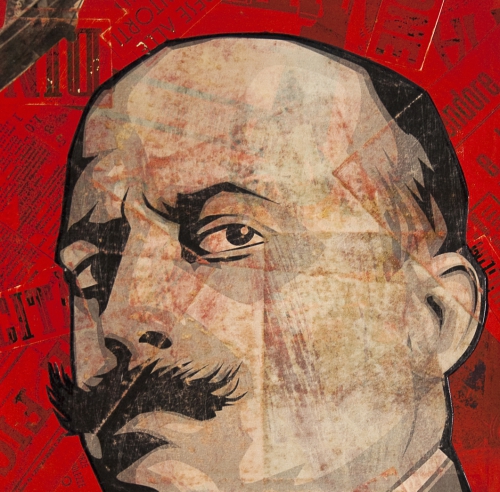



 Così mentre si delinea lo scenario di una Guerra Fredda articolata sulla contrapposizione tra due blocchi, quello statunitense e quello sovietico, i teorici Aflaq e Al Bitar mirano a edificare un’ideologia esclusivamente araba che si smarca sia dal capitalismo imperialista che dal marxismo internazionalista e che allo stesso tempo riesca a conciliare laicità, tradizione islamica, socialismo e nazionalismo. Patrick Seale, giornalista irlandese e biografo di Hafez Al Assad scrive ne Il Leone di Damasco parafrasando la dottrina del partito: “La nazione araba, insegna Aflaq, è millenaria, eterna ed unica, risale all’inizio dei tempi e ha davanti a sé un ancor più luminoso futuro. Per liberarsi dall’arretratezza e dall’oppressione straniera, gli arabi devono avere fede nella loro nazione ed amarla senza riserve”.
Così mentre si delinea lo scenario di una Guerra Fredda articolata sulla contrapposizione tra due blocchi, quello statunitense e quello sovietico, i teorici Aflaq e Al Bitar mirano a edificare un’ideologia esclusivamente araba che si smarca sia dal capitalismo imperialista che dal marxismo internazionalista e che allo stesso tempo riesca a conciliare laicità, tradizione islamica, socialismo e nazionalismo. Patrick Seale, giornalista irlandese e biografo di Hafez Al Assad scrive ne Il Leone di Damasco parafrasando la dottrina del partito: “La nazione araba, insegna Aflaq, è millenaria, eterna ed unica, risale all’inizio dei tempi e ha davanti a sé un ancor più luminoso futuro. Per liberarsi dall’arretratezza e dall’oppressione straniera, gli arabi devono avere fede nella loro nazione ed amarla senza riserve”.
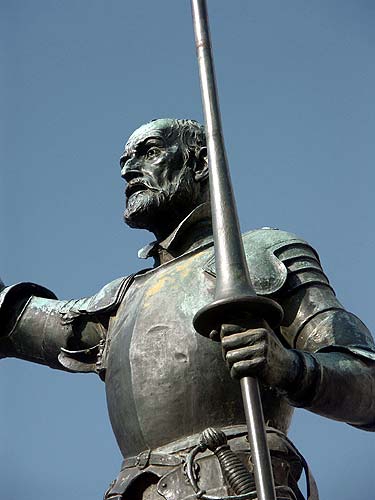


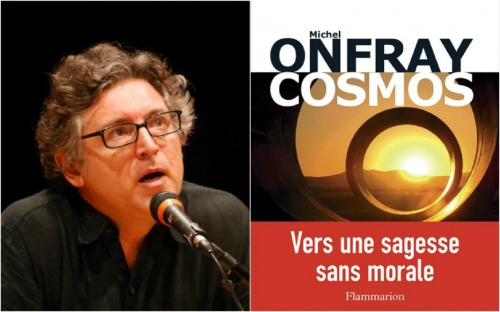
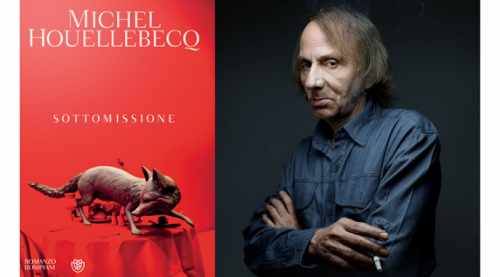
 Après son hystérie anti-serbe, Finkielkraut, sans doute parce qu’il prend de l’âge, s’est « bonifié » comme disent les œnologues. Son ouvrage sur la notion d’ingratitude, qui est constitué des réponses à un très long entretien accordé au journal québécois Le Devoir, est intéressant car il y explique que les malheurs de notre époque viennent du fait que l’homme actuel se montre « ingrat » par rapport aux legs du passé. J’ai lu cet entretien avec grand intérêt et beaucoup de plaisir, y retrouvant d’ailleurs une facette de l’antique querelle des anciens et des modernes. Je dois l’avouer même si le Finkielkraut serbophobe m’avait particulièrement horripilé. A partir de cette réflexion sur l’ingratitude, Finkielkraut va, peut-être inconsciemment, sans doute à son corps défendant, adopter les réflexes intellectuels des deux Serbes herdériens qu’il fustigeait avec tant de fureur dans les années 90. Il va découvrir l’« identité » et, par une sorte de tour de passe-passe qui me laisse toujours pantois, défendre une identité française que Lévy avait posée comme une matrice particulièrement répugnante du nazisme !
Après son hystérie anti-serbe, Finkielkraut, sans doute parce qu’il prend de l’âge, s’est « bonifié » comme disent les œnologues. Son ouvrage sur la notion d’ingratitude, qui est constitué des réponses à un très long entretien accordé au journal québécois Le Devoir, est intéressant car il y explique que les malheurs de notre époque viennent du fait que l’homme actuel se montre « ingrat » par rapport aux legs du passé. J’ai lu cet entretien avec grand intérêt et beaucoup de plaisir, y retrouvant d’ailleurs une facette de l’antique querelle des anciens et des modernes. Je dois l’avouer même si le Finkielkraut serbophobe m’avait particulièrement horripilé. A partir de cette réflexion sur l’ingratitude, Finkielkraut va, peut-être inconsciemment, sans doute à son corps défendant, adopter les réflexes intellectuels des deux Serbes herdériens qu’il fustigeait avec tant de fureur dans les années 90. Il va découvrir l’« identité » et, par une sorte de tour de passe-passe qui me laisse toujours pantois, défendre une identité française que Lévy avait posée comme une matrice particulièrement répugnante du nazisme !  Dans les années 80, Debray, devenu, plutôt à son corps défendant, faire-valoir du mitterrandisme ascendant, participera à toutes les mascarades de la gauche officielle, en voie de « festivisation » et d’embourgeoisement, où les cocottes et les bobos se piquent d’eudémonisme et se posent en « belles âmes » (on sait ce que Hegel en pensait…). Les actions qu’il mène, je préfère les oublier aujourd’hui, tant elles ont participé des bouffonneries pariso-parisiennes. Mais entre l’épisode du militant guevariste et celle du néo-national-gaulliste d’aujourd’hui, il n’y a pas eu que cette participation à la lèpre républicano-mitterrandiste, il y a eu le passage du Debray militant et idéologue au Debray philosophe et « médiologue » (une science visant à cerner l’impact des « médiations », des images, dont éventuellement celles des médias, sur la formation ou la transformation des mentalités et des aspirations politiques). C’est dans le cadre de ce statut de « médiologue », qui commence en 1993, que Debray va glisser progressivement vers des positions différentes de celles imposées par le ronron médiatique ou le « politiquement correct » des « nouveaux philosophes » (Lévy, etc.) « qui », dit-il, « produisent de l’indignation au rythme de l’actualité ». Debray, comme l’indique alors le titre d’un de ses ouvrages récents, Dégagements, se « dégage » de ses engagements antérieurs, l’espace de la gauche, de sa gauche, ayant été phagocyté par de nouveaux venus qui se disent « occidentaux » et participent à la pratique perverse de la table rase, notamment en Amérique latine : leur travail de sape serait entièrement parachevé si des hommes comme Evo Morales, qu’il qualifie positivement d’« indigéniste », ne s’étaient pas dressés contre son vieil ennemi l’impérialisme américain, appuyé par les bourgeoisies compradores.
Dans les années 80, Debray, devenu, plutôt à son corps défendant, faire-valoir du mitterrandisme ascendant, participera à toutes les mascarades de la gauche officielle, en voie de « festivisation » et d’embourgeoisement, où les cocottes et les bobos se piquent d’eudémonisme et se posent en « belles âmes » (on sait ce que Hegel en pensait…). Les actions qu’il mène, je préfère les oublier aujourd’hui, tant elles ont participé des bouffonneries pariso-parisiennes. Mais entre l’épisode du militant guevariste et celle du néo-national-gaulliste d’aujourd’hui, il n’y a pas eu que cette participation à la lèpre républicano-mitterrandiste, il y a eu le passage du Debray militant et idéologue au Debray philosophe et « médiologue » (une science visant à cerner l’impact des « médiations », des images, dont éventuellement celles des médias, sur la formation ou la transformation des mentalités et des aspirations politiques). C’est dans le cadre de ce statut de « médiologue », qui commence en 1993, que Debray va glisser progressivement vers des positions différentes de celles imposées par le ronron médiatique ou le « politiquement correct » des « nouveaux philosophes » (Lévy, etc.) « qui », dit-il, « produisent de l’indignation au rythme de l’actualité ». Debray, comme l’indique alors le titre d’un de ses ouvrages récents, Dégagements, se « dégage » de ses engagements antérieurs, l’espace de la gauche, de sa gauche, ayant été phagocyté par de nouveaux venus qui se disent « occidentaux » et participent à la pratique perverse de la table rase, notamment en Amérique latine : leur travail de sape serait entièrement parachevé si des hommes comme Evo Morales, qu’il qualifie positivement d’« indigéniste », ne s’étaient pas dressés contre son vieil ennemi l’impérialisme américain, appuyé par les bourgeoisies compradores. 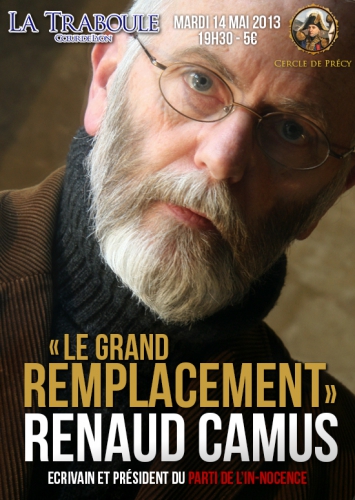 Je ne considère pas la notion de « Grand Remplacement » comme une thèse mais comme un terme-choc impulsant une réflexion antagoniste par rapport au fatras dominant, comme une figure de rhétorique, destinée à dénoncer la situation actuelle où le compassionnel, introduit dans les pratiques politiques par les nouveaux philosophes, évacue toute éthique de la responsabilité. Vous avez vous-même, en langue italienne, défini et explicité la notion de « Grand Remplacement » (
Je ne considère pas la notion de « Grand Remplacement » comme une thèse mais comme un terme-choc impulsant une réflexion antagoniste par rapport au fatras dominant, comme une figure de rhétorique, destinée à dénoncer la situation actuelle où le compassionnel, introduit dans les pratiques politiques par les nouveaux philosophes, évacue toute éthique de la responsabilité. Vous avez vous-même, en langue italienne, défini et explicité la notion de « Grand Remplacement » (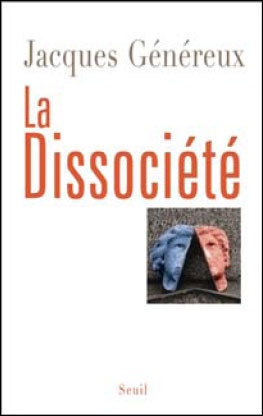 Je mettrais en parallèle la double idée de Renaud Camus d’une « dé-culturation » et d’une « dé-civilisation » avec l’idée de « dissociété », forgée par le philosophe Marcel De Corte au début des années 50. Pour De Corte, monarchiste belge et catholique thomiste, l’imposition des élucubrations libérales de la révolution française aux peuples d’Europe a conduit à la dislocation du tissu social, si bien que nous n’avons plus affaire à une « société » harmonieuse, au sens traditionnel du terme comme l’entendait Louis de Bonald, mais à une « dissociété ». L’idée, en dépit de son origine très conservatrice, est reprise aujourd’hui par quelques théoriciens d’une gauche non-conformiste, dont le Prof. Jacques Généreux qui constate amèrement que les pathologies de la dissociété moderne sont une « maladie sociale dégénérative qui altère les consciences en leur inculquant une culture fausse ». Généreux, socialiste au départ et rêvant à l’avènement d’un nouveau socialisme capable de gommer définitivement les affres de la « dissociété », quitte, déçu, le PS français en 2008 pour aller militer au « Parti de Gauche » et pour figurer sur la liste « Front de Gauche pour changer l’Europe », candidate aux élections européennes de 2009. En mars 2013, les idées, pourtant pertinentes, de Généreux ne séduisent plus ses compagnons de route et ses co-listiers : il n’est pas réélu au Bureau politique ! Preuve que la pertinence ne peut aller se nicher et prospérer au sein des gauches françaises non socialistes, bornées dans leurs analyses, sclérosées dans des marottes jacobines et résistancialistes qui ne sont qu’anachronismes ou tourneboulées par les délires immigrationnistes dont l’irréalisme foncier est plus virulent et plus maladivement agressif en France qu’ailleurs en Europe.
Je mettrais en parallèle la double idée de Renaud Camus d’une « dé-culturation » et d’une « dé-civilisation » avec l’idée de « dissociété », forgée par le philosophe Marcel De Corte au début des années 50. Pour De Corte, monarchiste belge et catholique thomiste, l’imposition des élucubrations libérales de la révolution française aux peuples d’Europe a conduit à la dislocation du tissu social, si bien que nous n’avons plus affaire à une « société » harmonieuse, au sens traditionnel du terme comme l’entendait Louis de Bonald, mais à une « dissociété ». L’idée, en dépit de son origine très conservatrice, est reprise aujourd’hui par quelques théoriciens d’une gauche non-conformiste, dont le Prof. Jacques Généreux qui constate amèrement que les pathologies de la dissociété moderne sont une « maladie sociale dégénérative qui altère les consciences en leur inculquant une culture fausse ». Généreux, socialiste au départ et rêvant à l’avènement d’un nouveau socialisme capable de gommer définitivement les affres de la « dissociété », quitte, déçu, le PS français en 2008 pour aller militer au « Parti de Gauche » et pour figurer sur la liste « Front de Gauche pour changer l’Europe », candidate aux élections européennes de 2009. En mars 2013, les idées, pourtant pertinentes, de Généreux ne séduisent plus ses compagnons de route et ses co-listiers : il n’est pas réélu au Bureau politique ! Preuve que la pertinence ne peut aller se nicher et prospérer au sein des gauches françaises non socialistes, bornées dans leurs analyses, sclérosées dans des marottes jacobines et résistancialistes qui ne sont qu’anachronismes ou tourneboulées par les délires immigrationnistes dont l’irréalisme foncier est plus virulent et plus maladivement agressif en France qu’ailleurs en Europe. 

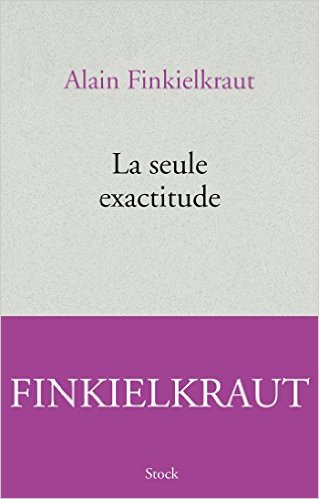 Ce livre s’inscrit dans la lignée des grands livres d’Alain Finkielkraut, La Défaite de la pensée, le Mécontemporain, Nous autres Modernes, Un Cœur intelligent, L’Identité malheureuse, L’Imparfait du présent, et comme ces livres, il se lit d’un trait. Alain Finkielkraut a été et reste un brillant élève qui maîtrise à merveille l’art de la dissertation, tel qu’il était enseigné naguère (jadis ?) dans les lycées : clarté, sûreté du jugement, équilibre, précision des références, fermeté de l’expression, élégance. Il est, comme Chateaubriand, un enchanteur. Ce qu’il déploie, ce ne sont pas seulement les artifices rhétoriques du « bien dire », c’est surtout la pensée, l’intelligence, la haute culture. L’atteste l’usage qu’il fait des citations, non pas pour éblouir les pharisiens, mais pour dialoguer avec les morts, avec les grands ancêtres, avec ceux qui ont pensé avant soi ou qui ont pensé eux aussi la question que l’on traite.
Ce livre s’inscrit dans la lignée des grands livres d’Alain Finkielkraut, La Défaite de la pensée, le Mécontemporain, Nous autres Modernes, Un Cœur intelligent, L’Identité malheureuse, L’Imparfait du présent, et comme ces livres, il se lit d’un trait. Alain Finkielkraut a été et reste un brillant élève qui maîtrise à merveille l’art de la dissertation, tel qu’il était enseigné naguère (jadis ?) dans les lycées : clarté, sûreté du jugement, équilibre, précision des références, fermeté de l’expression, élégance. Il est, comme Chateaubriand, un enchanteur. Ce qu’il déploie, ce ne sont pas seulement les artifices rhétoriques du « bien dire », c’est surtout la pensée, l’intelligence, la haute culture. L’atteste l’usage qu’il fait des citations, non pas pour éblouir les pharisiens, mais pour dialoguer avec les morts, avec les grands ancêtres, avec ceux qui ont pensé avant soi ou qui ont pensé eux aussi la question que l’on traite. Alain Finkielkraut consacre une courte réflexion à la disparition possible de la gauche, ce qu’a prédit Manuel Valls. Non, la gauche n’est pas mortelle, elle est éternelle, comme le sont les mensonges, les falsifications, les déformations, les censures, les doubles ou triples discours, les promesses, la démagogie, le cynisme, la soif de pouvoir. En décembre 1965, Mitterrand accorde un long entretien à deux journalistes du Nouvel Observateur et pas des moindres, Daniel et Galard. Il se présente comme un résistant. Vingt ans après la fin de la guerre, il ne lui est posé aucune question sur ses engagements avant 1939 et en 1942-44 à Vichy. Il se présente comme le défenseur du tiers-monde, parce qu’il critique les généraux brésiliens qui ont pris un pouvoir que des civils élus n’ont pas voulu exercer. Il ne lui est pas rappelé ses engagements contre les tiers-mondistes d’Algérie à partir du 1er novembre 1954 ; le soutien qu’il a apporté à l’intervention militaire en Egypte, pays du tiers-monde, en 1956 ; les pleins pouvoirs que le gouvernement auquel il participait a donnés à l’armée pour rétablir par la torture et les exécutions sommaires l’ordre « républicain » à Alger. Il ne lui a même pas été objecté les 61 condamnés à mort exécutés pendant 15 mois, le garde des sceaux qu’il était alors ayant refusé que soient transmises au président Coty, pour signature, des demandes de grâce. La gauche a réécrit l’histoire pour fabriquer un politicien. Les communistes ont procédé de la même manière quand ils ont falsifié la « biographie » de Marchais, leur Premier secrétaire. Que M. Valls ne s’inquiète pas sur le sort de la gauche : dans dix ou vingt ans, un nouveau leader apparaîtra qui pourra redonner le pouvoir à la gauche. Et la machine à mensonges fabriquera les mêmes fables.
Alain Finkielkraut consacre une courte réflexion à la disparition possible de la gauche, ce qu’a prédit Manuel Valls. Non, la gauche n’est pas mortelle, elle est éternelle, comme le sont les mensonges, les falsifications, les déformations, les censures, les doubles ou triples discours, les promesses, la démagogie, le cynisme, la soif de pouvoir. En décembre 1965, Mitterrand accorde un long entretien à deux journalistes du Nouvel Observateur et pas des moindres, Daniel et Galard. Il se présente comme un résistant. Vingt ans après la fin de la guerre, il ne lui est posé aucune question sur ses engagements avant 1939 et en 1942-44 à Vichy. Il se présente comme le défenseur du tiers-monde, parce qu’il critique les généraux brésiliens qui ont pris un pouvoir que des civils élus n’ont pas voulu exercer. Il ne lui est pas rappelé ses engagements contre les tiers-mondistes d’Algérie à partir du 1er novembre 1954 ; le soutien qu’il a apporté à l’intervention militaire en Egypte, pays du tiers-monde, en 1956 ; les pleins pouvoirs que le gouvernement auquel il participait a donnés à l’armée pour rétablir par la torture et les exécutions sommaires l’ordre « républicain » à Alger. Il ne lui a même pas été objecté les 61 condamnés à mort exécutés pendant 15 mois, le garde des sceaux qu’il était alors ayant refusé que soient transmises au président Coty, pour signature, des demandes de grâce. La gauche a réécrit l’histoire pour fabriquer un politicien. Les communistes ont procédé de la même manière quand ils ont falsifié la « biographie » de Marchais, leur Premier secrétaire. Que M. Valls ne s’inquiète pas sur le sort de la gauche : dans dix ou vingt ans, un nouveau leader apparaîtra qui pourra redonner le pouvoir à la gauche. Et la machine à mensonges fabriquera les mêmes fables. Sur quelques points, Alain Finkielkraut reste « de gauche », comme en témoigne la critique qu’il fait du Suicide français. A Zemmour, il prête des simulacres de thèses, le transformant sinon un négationniste, du moins un complice des négationnistes. L’antienne est banale. Zemmour étudie 40 années, de 1970 à 2010, qui ont défait la France. En 1981, l’historien américain Paxton accuse Vichy d’avoir participé à l’extermination des Juifs. Cette thèse rend caduque celle de l’historien français Aron, qui tenait Vichy pour un « bouclier », certes peu protecteur, des juifs français. C’est ce fait-là, à savoir le basculement de l’historiographie, que Zemmour analyse, le livre de Paxton mettant fin aussi à la thèse gaulliste sur les années 1940. Pour les Français libres, la France était à Londres. Paxton a replacé la France à Vichy et il l’a rendue responsable des crimes commis sur son territoire. Autre exemple : Alain Finkielkraut a été enthousiasmé par le 11 janvier. Ce jour-là, le chef de l’Etat a organisé une manifestation monstre avec tous les moyens dont dispose l’Etat et le soutien de tous les médias, qu’ils soient d’Etat ou privés. Dans de nombreux pays au monde, de semblables manifestations « officielles » ou étatiques sont propres aux Etats despotiques ou totalitaires. Le 11 janvier a eu pour mot d’ordre la « liberté d’expression » Or, seul l’Etat et ses institutions, dont la « justice », ou les associations lucratives sans but, la menacent. Ce n’est pas la liberté d’expression qui a été attaquée les 7, 8, 9 janvier ; ce sont des crimes racistes qui ont été commis. Des juifs ont été tués parce qu’ils étaient juifs et des dessinateurs ont été exécutés au nom de la loi islamique, parce que les infidèles n’ont pas le droit de représenter le rasoul, ou « messager », d’Allah. Or, le 11 janvier, personne n’a protesté et surtout pas l’Etat contre l’application sur le territoire de la République d’une loi, décidée par on ne sait qui et qui n’a force de loi qu’en Arabie saoudite ou en Afghanistan ou dans les territoires contrôlés par Boko Haram ou par l’Etat islamique. Il n’est pas étonnant que, les choses étant ce qu’elles sont, Alain Finkielkraut ait été dépité par l’après-11 janvier.
Sur quelques points, Alain Finkielkraut reste « de gauche », comme en témoigne la critique qu’il fait du Suicide français. A Zemmour, il prête des simulacres de thèses, le transformant sinon un négationniste, du moins un complice des négationnistes. L’antienne est banale. Zemmour étudie 40 années, de 1970 à 2010, qui ont défait la France. En 1981, l’historien américain Paxton accuse Vichy d’avoir participé à l’extermination des Juifs. Cette thèse rend caduque celle de l’historien français Aron, qui tenait Vichy pour un « bouclier », certes peu protecteur, des juifs français. C’est ce fait-là, à savoir le basculement de l’historiographie, que Zemmour analyse, le livre de Paxton mettant fin aussi à la thèse gaulliste sur les années 1940. Pour les Français libres, la France était à Londres. Paxton a replacé la France à Vichy et il l’a rendue responsable des crimes commis sur son territoire. Autre exemple : Alain Finkielkraut a été enthousiasmé par le 11 janvier. Ce jour-là, le chef de l’Etat a organisé une manifestation monstre avec tous les moyens dont dispose l’Etat et le soutien de tous les médias, qu’ils soient d’Etat ou privés. Dans de nombreux pays au monde, de semblables manifestations « officielles » ou étatiques sont propres aux Etats despotiques ou totalitaires. Le 11 janvier a eu pour mot d’ordre la « liberté d’expression » Or, seul l’Etat et ses institutions, dont la « justice », ou les associations lucratives sans but, la menacent. Ce n’est pas la liberté d’expression qui a été attaquée les 7, 8, 9 janvier ; ce sont des crimes racistes qui ont été commis. Des juifs ont été tués parce qu’ils étaient juifs et des dessinateurs ont été exécutés au nom de la loi islamique, parce que les infidèles n’ont pas le droit de représenter le rasoul, ou « messager », d’Allah. Or, le 11 janvier, personne n’a protesté et surtout pas l’Etat contre l’application sur le territoire de la République d’une loi, décidée par on ne sait qui et qui n’a force de loi qu’en Arabie saoudite ou en Afghanistan ou dans les territoires contrôlés par Boko Haram ou par l’Etat islamique. Il n’est pas étonnant que, les choses étant ce qu’elles sont, Alain Finkielkraut ait été dépité par l’après-11 janvier.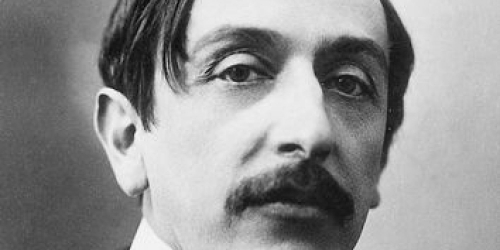
 PHILITT :
PHILITT : 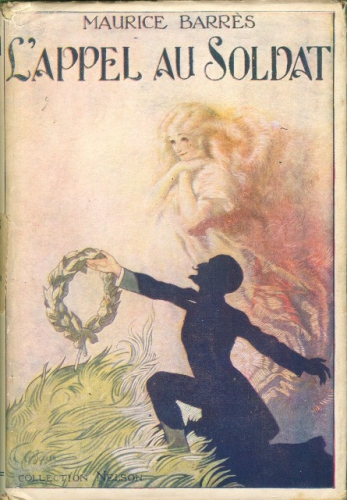 PHILITT :
PHILITT : 









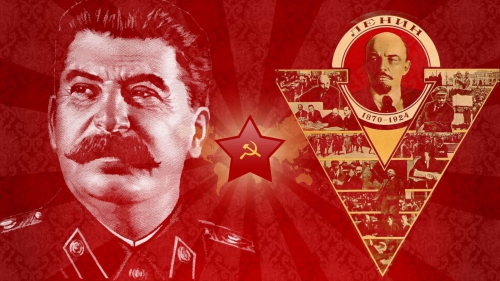

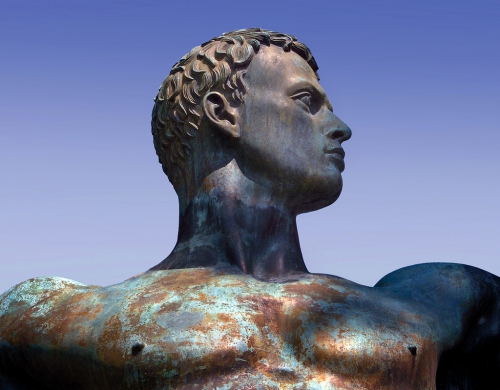
 Respectivement consacrés à Renzo de Felice et Giorgio Locchi, les chapitres 1 et 6 de la première partie posent les questions les plus fondamentales pour notre famille de pensée. Jusqu’où faire remonter la recherche de notre « moment zéro » (François Bousquet) ? Les étapes de la « tendance époquale » surhumaniste se succèdent-elles de manière continue ? Le fascisme lato sensu (dont le national-socialisme est provisoirement la forme la plus achevée) a-t-il été « prématuré (p. 142) », comme le laissent supposer certains passagers de Nietzsche prophétisant un interrègne nihiliste de deux siècles ?
Respectivement consacrés à Renzo de Felice et Giorgio Locchi, les chapitres 1 et 6 de la première partie posent les questions les plus fondamentales pour notre famille de pensée. Jusqu’où faire remonter la recherche de notre « moment zéro » (François Bousquet) ? Les étapes de la « tendance époquale » surhumaniste se succèdent-elles de manière continue ? Le fascisme lato sensu (dont le national-socialisme est provisoirement la forme la plus achevée) a-t-il été « prématuré (p. 142) », comme le laissent supposer certains passagers de Nietzsche prophétisant un interrègne nihiliste de deux siècles ?
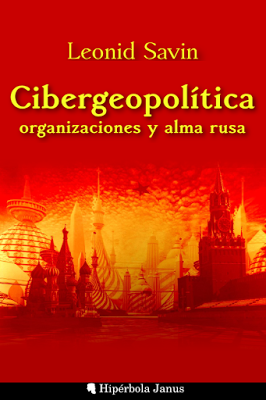 Tenemos el placer de presentar a nuestros lectores una nueva obra que, como viene siendo costumbre en nuestras publicaciones, no tiene precedente alguno en lengua castellana. «Cibergeopolítica, organizaciones y alma rusa» de
Tenemos el placer de presentar a nuestros lectores una nueva obra que, como viene siendo costumbre en nuestras publicaciones, no tiene precedente alguno en lengua castellana. «Cibergeopolítica, organizaciones y alma rusa» de 

